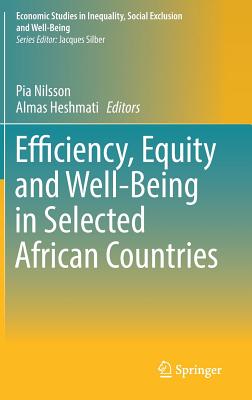Pro-Poor Strategies in Urban Water Provisioning: What Kenyan Water Utilities Do and Why They Do It
暫譯: 城市供水中的親貧策略:肯尼亞水務公司如何運作及其原因
Boakye-Ansah, Akosua Sarpong
商品描述
Water utilities are the main instrument for countries to achieve universal service coverage. In pursuing universal service coverage, water utilities have turned to pro-poor water services to extend water services in low-income areas. This thesis discusses the use of pro-poor water services by water utilities in Kenya, with the intention of highlighting the dimensions of the approach that require attention of policy makers and practitioners when engaging with the concept. Based on the analysis of the technologies, financial and organisational arrangements associated with the pro-poor concept, this thesis shows that the use of pro-poor strategies allows water utilities to reduce the risks of servicing low-income areas while still claiming to fulfil their mandate of providing access to all in a commercially viable manner. The analysis also shows that rather than a decision of the water utility, the choice for pro-poor strategies emerges as the result of a consensus or compromise between the different actors that constitute the broader institutional environment in which water utilities operate. The thesis concludes that while pro-poor water services may serve the interests of water utilities and other stakeholders, in the absence of well-directed subsidies and proper monitoring they will not result in low-income households benefiting from more affordable and reliable access to water.
商品描述(中文翻譯)
水務機構是各國實現普遍服務覆蓋的主要工具。在追求普遍服務覆蓋的過程中,水務機構轉向以貧困為導向的水服務,以擴展低收入地區的水服務。本論文討論了肯尼亞水務機構使用以貧困為導向的水服務,旨在突顯在與該概念互動時,政策制定者和實踐者需要關注的各個方面。基於對與以貧困為導向的概念相關的技術、財務和組織安排的分析,本論文顯示,使用以貧困為導向的策略使水務機構能夠降低為低收入地區提供服務的風險,同時仍然聲稱以商業可行的方式履行其提供所有人獲得服務的使命。分析還顯示,選擇以貧困為導向的策略並非水務機構的單方面決定,而是水務機構運作的更廣泛制度環境中不同參與者之間達成共識或妥協的結果。論文總結指出,儘管以貧困為導向的水服務可能符合水務機構和其他利益相關者的利益,但在缺乏適當指導的補貼和有效監控的情況下,這些服務不會使低收入家庭受益於更可負擔和可靠的水源獲取。
作者簡介
Akosua Sarpong Boakye-Ansah holds a Bachelor's degree in Laboratory Technology from the University of Cape-Coast, Ghana and a Master's degree (cum laude) in Water Management from the IHE Delft Institute for Water Education (formerly UNESCO-IHE Delft Institute for Water Education). Between the periods of 2007 and 2015, she worked with the Ghana Water Company Limited (GWCL) first as Chemist/Bacteriologist in a Central Water Laboratory and then as a Process Chemist for the Barekese treatment works, in the Ashanti region of Ghana. In this capacity, she was responsible for the treatment of water and ensuring the overall quality of water treated on the plant.
In 2015, she started her PhD research with the Water Governance department of the IHE Delft Institute for Water Education. Her research formed part of the project, Performance Enhancement of Water Utilities in Kenya through benchmarking, collective learning and innovative financing (PEWAK). As a practitioner, she is experienced in drinking and wastewater treatment, water quality assessment and water distribution. As a researcher, she is interested in social, political, institutional and governance aspects of water services and has been involved in research in different countries including Ghana, Malawi and Kenya.
作者簡介(中文翻譯)
Akosua Sarpong Boakye-Ansah 擁有加納海岸大學的實驗室技術學士學位,以及荷蘭代爾夫特IHE水教育研究所(前身為聯合國教科文組織IHE代爾夫特水教育研究所)的水資源管理碩士學位(優等)。在2007年至2015年間,她在加納水公司(GWCL)工作,最初擔任中央水質實驗室的化學家/細菌學家,然後擔任位於加納阿散蒂地區Barekese處理廠的過程化學家。在此職位上,她負責水的處理以及確保處理廠水質的整體品質。
2015年,她開始在IHE代爾夫特水教育研究所的水治理部門進行博士研究。她的研究是肯尼亞水務公司績效提升項目的一部分,該項目通過基準測試、集體學習和創新融資(PEWAK)來進行。作為一名實務工作者,她在飲用水和廢水處理、水質評估和水分配方面擁有豐富的經驗。作為一名研究者,她對水服務的社會、政治、制度和治理方面感興趣,並參與了包括加納、馬拉威和肯尼亞等不同國家的研究。




















